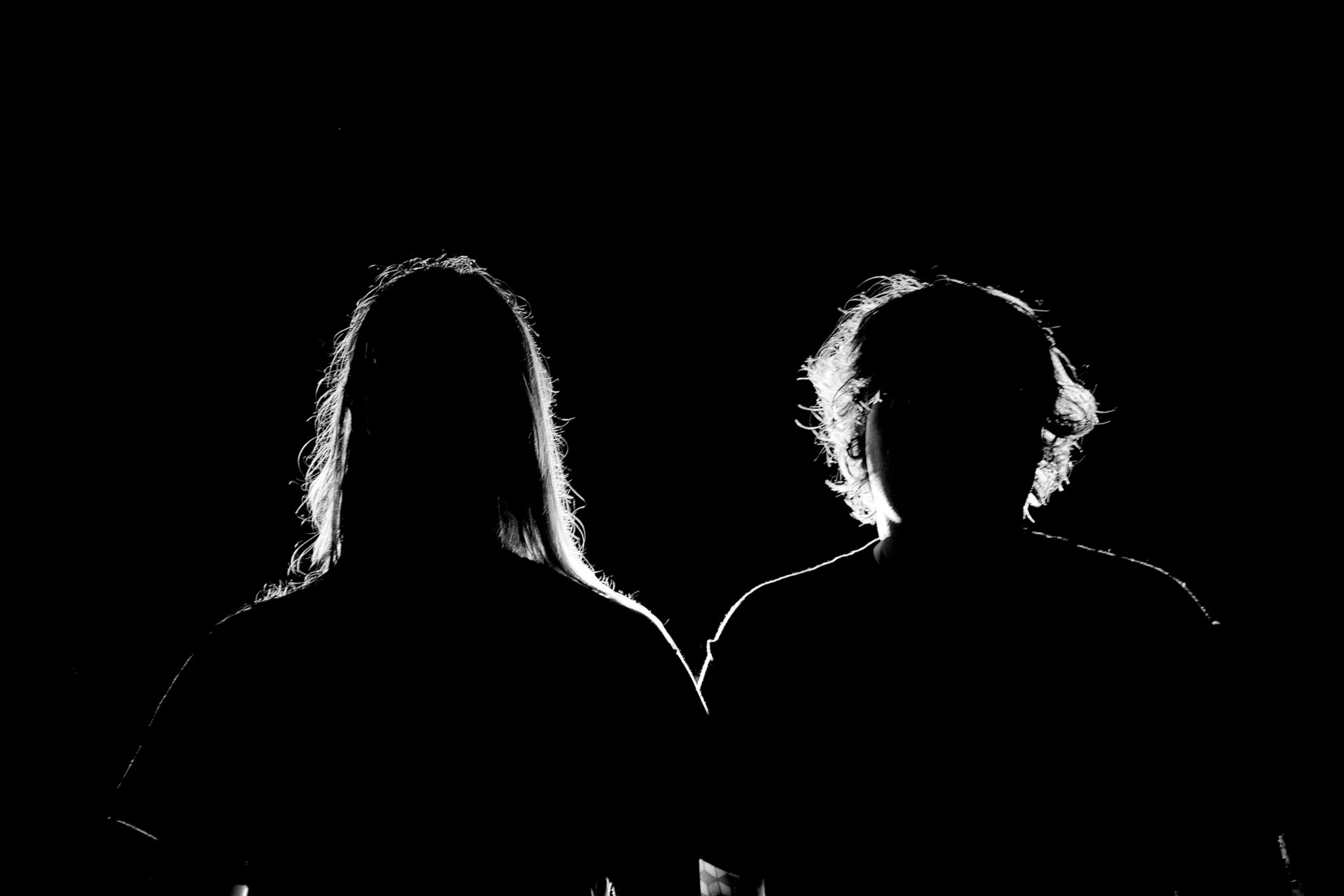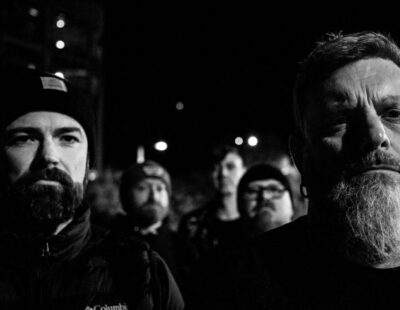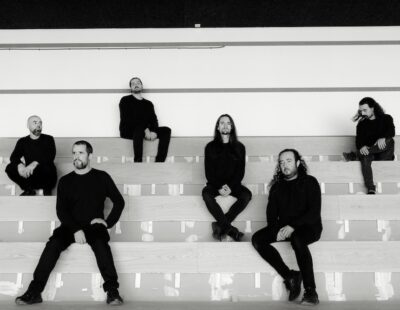
Body Void are the bearers of bad news on their new album, Bury Me Beneath This Rotting Earth. The third full-length, and fifth release, from the duo is a mournful statement on the environment and the earth’s impending climate crisis, spelled out in massive, droning blackened doom. “Fawn,” a new song streaming below alongside an interview with guitarist/vocalist Willow Ryan, is representative of what to expect on Bury Me.
The third track, “Fawn” drops the listener into the middle of the record, a yawning vortex of swirling, crackling noise and screeching guitars that serve as the background for guitarist/vocalist Ryan’s high-pitched screams. It creates a rumbling, heavy mass that is propelled forward by the changing of chords and, when the moment calls for it, explosive drumming.
Like Primitive Man and Sun O))), Body Void are skilled at creating and moving sonic mass. You can hear them do it at the Youtube link below, with pre-orders and more music available here. Bury Me Beneath This Rotting Earth is out April 23 on Prosthetic.
Bury Me Beneath This Rotting Earth was recorded while the United States was in a very well-documented state of civil unrest relating to systemic racism and police brutality, on top of the already-existing coronavirus situation. Did those things affect the way you wrote or recorded the record?
Absolutely. covid was a genuine physical hurtle when it came to the recording process. When the lockdowns first started last year we didn’t think we’d be able to record until the US had beat the virus. Thankfully our area of the country in New England kept the virus to a minimum through the summer with only one or two new cases a day in our state and we were able to get to the studio for a few days. It was definitely surreal though. It was the first time either of us had spent any time anywhere outside our house for months. The protests in response to George Floyd’s murder had also really started to take hold throughout the country just as we entered the studio, so it was impossible not to acknowledge what was going on. I wrote lyrics for two of the album’s songs during the recording session which were very inspired by the protests and the cultural climate at that time. But also taking stock of the history, specifically the American history, that had led to those events.
Environmentalism is a large part of the lyrics on Bury Me. Is it a cry for change or just a lament for how bad the climate crisis has become?
Both, I’d say. I think that push and pull between cynicism and hope is part of the album. The conclusion I’ve come to and what inspired the album title is that, even in moments of hopelessness, there’s really nothing to do but still fight for change. It’s a privilege less and less of us have to remain complacent. The climate crisis is at a certain point a simple fight for survival. Living in San Francisco before we moved to the east coast, extended parts of the year daily air quality was a real concern. Many of our neighbors in the Bay lost their homes because of wildfires.These are real material concerns that are becoming more and more common everywhere. So this album was really about saying, despite the damage we’ve done, the earth is our home and we have to protect it. Against capitalism, against white supremacy, against those who are willing to cash the planet in to enrich themselves.
Would you say that Bury Me is a concept record? If so, did having one unified theme throughout change the way you wrote?
Not strictly. I like to have a loose unifying theme when approaching lyrics for an album, which usually leads the writing in multiple directions. At first, I wanted the album to entirely be about climate change, but then 2020 happened and it was impossible not to write more specifically about white supremacy. Of course, those two things are related. In the end, I think the album is really just a snapshot of the moment it was recorded, living in 2020 with Donald Trump as president and protests in the streets while the ever-present specter of climate change looms large. It’s amazing how much it’s aged before it’s even come out [laughs].
In the past, Body Void has written about subjects like mental illness, gender identity and death. Are those topics still present as well?
Not so much. After our first two albums, I wanted to move away from more personal, internal topics. Part of that was just Donald Trump becoming president and fascism becoming a global force again. But I think at a certain point the band became less of a pressure valve for anxiety like it had been in the early days. To keep going in that direction would’ve felt like playing to an image or something rather than exploring what we really cared about, so it was just a natural shift.
This is your first album for Prosthetic. As far as I understand, Body Void has largely been a DIY band working with small labels in the past; has working with a larger label afforded you opportunities you didn’t have before?
For sure. I don’t think we’ll ever not be a DIY band on some level given the financial potential of extreme metal, but Prosthetic has made things we’ve wanted to do in the past to promote our music much easier and more possible. We always just want to work with people who not only have our interests at heart, but the larger extreme metal community’s interests as well. The folks at Prosthetic have definitely come through.
Coronavirus will have effectively killed something like two or more years of DIY and small-scale touring when all is said and done. Do you feel like this stunted Body Void’s momentum or made it harder to promote the new album?
It’s strange, I’d obviously much rather we had the ability to tour to promote the album, but I think putting something out now has its advantages. More people are just clued in to all the updates online because there’s nothing else to do but listen to music and anticipate new albums. I don’t think it’s stunted our momentum. At least I hope not. It’s just a different world for the time being. I expect when shows come back we could see even more enthusiasm, not just for us specifically, but really DIY music in general.








